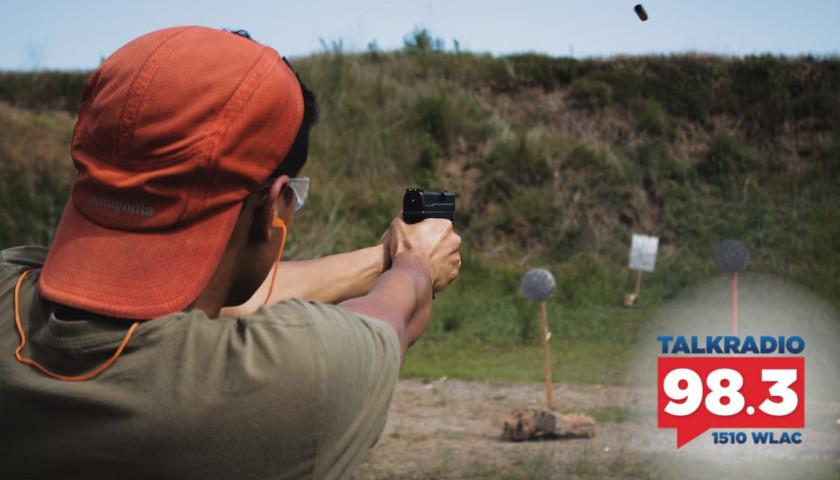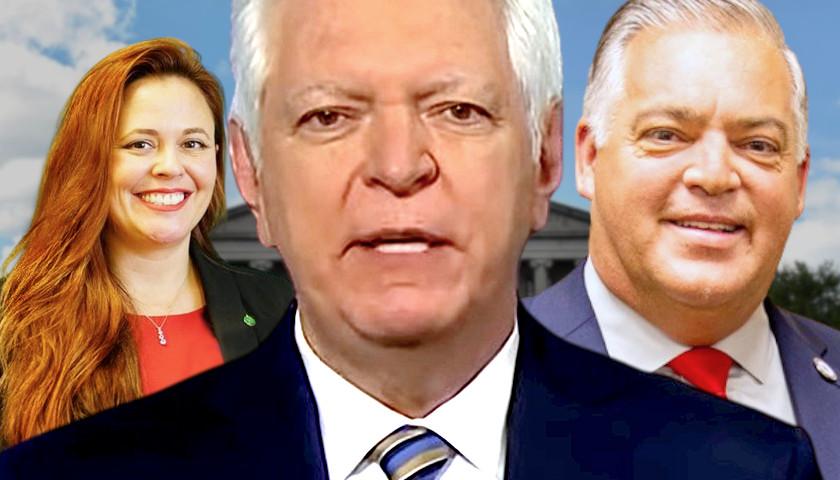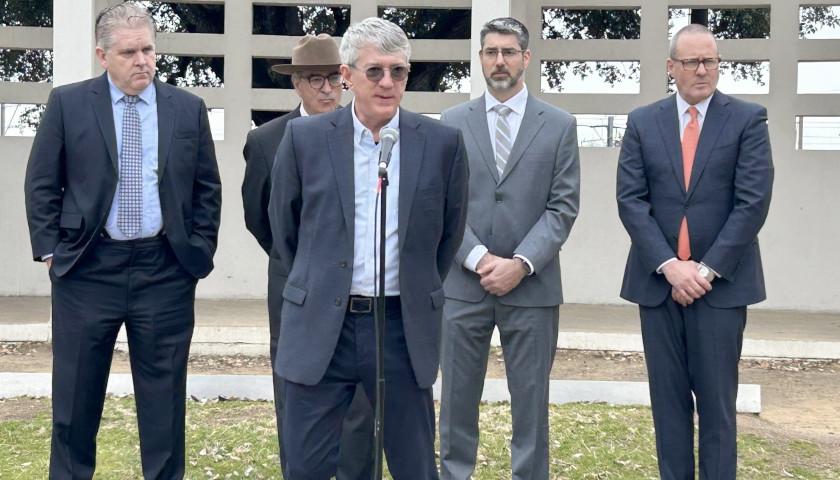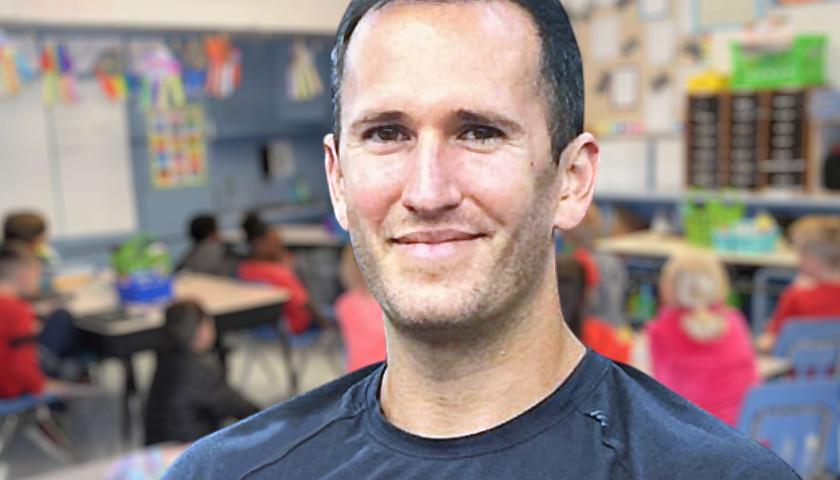Live from Music Row, Wednesday morning on The Tennessee Star Report with Michael Patrick Leahy – broadcast on Nashville’s Talk Radio 98.3 and 1510 WLAC weekdays from 5:00 a.m. to 8:00 a.m. – host Leahy welcomed the founder and president of the Tennessee Firearms Association, John Harris in studio to discuss what first prompted his interest in the Second Amendment.
Leahy: Right now we are delighted to welcome to our microphones here in studio our very good friend the first advertiser on The Tennessee Star more than six years ago, the founder and president of the Tennessee firearms association, Mr. John Harris. Good morning John!
Harris: Good morning. Thank you.
Leahy: It’s always fun to have you here. What time do you usually get up?
Harris: Normally somewhere between 4:30 a.m. and 5 a.m.
Leahy: So this is not really extra heavy lifting for you to come in at this time.
Harris: Particularly during hunting season.
Leahy: During hunting season?
Harris: In hunting season it’s 3 a.m.
Leahy: You a big hunter?
Harris: I’m a big hunter. But I love wild game, and the only way to get it is to get up and go do it.
Leahy: When is the last time you went hunting?
Harris: First of January.
Leahy: What did you get?
Harris: Went deer hunting this year. Mainly deer hunting.
Leahy: You talk about hunting because you know I do a lot of history reading, and pretty much if you read about English history from the time of Alfred the Great 860 AD until 1700, the nobility of England all they did was hunt and fight in wars. And hunting was practiced for wars.
Harris: A lot of it yes.
Leahy: They were just crazy about hunting and didn’t do much of anything else. (Chuckles) But they hunted and went to war. Was it your hunting experience as a child that got you interested in the Second Amendment?
Harris: Not really because growing up in Nashville there wasn’t a lot of hunting that went on as a child. (Laughter) That came on much later as I started dating a girl that grew up in western Kentucky.
Leahy: Ah ha! Tell us about your interest in the Second Amendment. You went to Vanderbilt Law School. Did you have an interest in the Second Amendment before law school?
Harris: Yes, I would say so because by then I picked up shooting as a hobby. And so that was there. And it was amazing even back then that there were so many restrictions on what you could do. There was no way a civilian for a practical purpose could even carry back then.
At that time, the law in Tennessee was you could carry a military-style handgun openly in your hand, and you didn’t have to have a permit for that. But you couldn’t holster it or conceal it. Like 1911, and it had to be literally carried in your hand.
Leahy: That pesky Second Amendment, the right to bear arms shall not be infringed. Shall not be infringed. It doesn’t say, might now be infringed. (Chuckles) Will be infringed unless these circumstances are met.
Harris: Right.
Leahy: Shall not be infringed. That seems pretty definitive to me.
Harris: It is absolutely. The Second Amendment hasn’t changed since the 1700s. But there has been a great deal of debate over what it means. And frankly, the courts pretty well understood it all the way through the 1800s. It was the early 1900s when they started getting it wrong. And that came on with the prohibition era.
Leahy: Back to the prohibition era. 1919, that period of time, the progressive era when the federal government began to think you know, we are going to tell citizens what they can and cannot do. We’ve been in that era, for now, a century.
Harris: Yes.
Leahy: It has started to become worrisome. Wouldn’t you say?
Harris: Oh yes. We can’t have real toilets anymore because of the federal government.
Listen to today’s show highlights, including this interview:
– – –
Tune in weekdays from 5:00 – 8:00 a.m. to The Tennessee Star Report with Michael Patrick Leahy on Talk Radio 98.3 FM WLAC 1510. Listen online at iHeart Radio.




